Provost Faculty Fellows Program
List of Provost Faculty Fellows
Overview
The Provost’s Faculty Fellows program offers a unique faculty leadership development experience while working on relevant issues that advance Academic Affairs and are aligned with the University’s strategic goals and priorities. Working with the Provost’s Office, selected Fellows will each have the opportunity to coordinate a university-wide project and engage with administrators and faculty leaders across the institution.
Fellows will work closely with academic administrators who will provide mentoring and share their insights into higher education administration. Fellows’ projects will focus on addressing issues and/or developing strategies related to Student Success and Academic Policies.
Structure
Provost’s faculty fellowships will begin in May 2024 and continue through April 2025 with an opportunity for an extension for a second-year contingent on progress toward agreed upon goals/outcomes, availability of funding, and approval of the Provost.
Meetings in Spring 2024 will be held with Provost Office staff to discuss specific assigned projects and to develop a basic plan for the work that will be done during the fellowship. Regular meetings with the Provost Office staff and collaboration with key faculty and staff across the University who are involved with their project are required.
Fellows will receive a $1,500.00 stipend for Summer 2024, a 3 hour course release during Fall 2024 and a 3 hour course release during Spring 2025.
Eligibility
All full-time non-administrative faculty are eligible for the Provost’s Faculty Fellows program. Program directors and department chairs are also eligible to participate; other faculty who hold an administrative position are not eligible.
Application
To be considered for participation in the Provost’s Faculty Fellows program, you will need to submit the following to the online application:
- a letter of application,
- a copy of your current CV, and
- Provost’s Faculty Fellows Program Support Form signed by your chair and dean supporting your application for this program
Your letter of application should include a narrative describing your interest in one of the projects listed above. In addition, provide an example of a project or an initiative that you led and describe its success/outcome. You should also identify areas of leadership in which you would like to receive further professional development.
Provost Faculty Fellows Program application period has closed.
Candidates will be selected based on their contributions to the University, their interest with the project areas identified above, demonstrated leadership qualities, and career aspirations. Selected Fellows will be notified by January 2024 and will begin their fellowship in May 2024.
If you have any questions or need any additional information, please contact Dr. Angela Paprocki, Chief of Academic Operations/AVP Institutional Effectiveness at angela.paprocki@utoledo.edu.
Fellows
2024-25 Provost Fellows
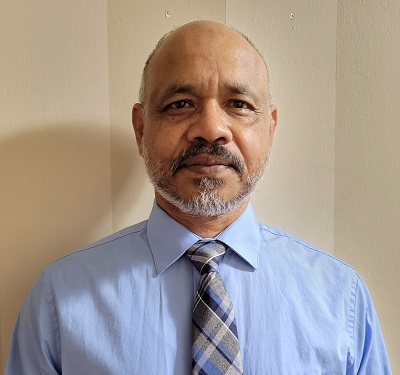 Bhuiyan Monwar Alam, Ph.D.
Bhuiyan Monwar Alam, Ph.D.
Dr. Bhuiyan Monwar Alam is a professor of urban & regional planning and the director of the spatially integrated social science Ph.D. program in the College of Arts & Letters at the University of Toledo. He holds a Ph.D. in urban & regional planning, a master’s in civil & environmental engineering, another master’s in regional & rural development planning, and a bachelor’s in civil engineering. He was a Fulbright U.S. Scholar at King Fahd University of Petroleum & Minerals in Saudi Arabia in 2017.
Dr. Alam has several years of teaching experience in online, blended, and classroom environments at the Ph.D., master’s, and undergraduate levels. His courses are student-centric and community-oriented. He often runs the extra mile by spending extra time in the classroom and the study areas, i.e., in the field laboratories, and maintaining continuous communication with the local community stakeholders – not only during the semester but also before and after the semester.
Dr. Alam is a transportation specialist whose interests over the years have expanded from work in big data analysis in public transport accessibility measurement and traffic safety to other aspects of transport research. He also works on environmental planning issues. Dr. Alam employs both spatial and non-spatial quantitative techniques to seek answers to his research questions. His research focuses on the United States and Bangladesh, but he has also collaborated on research on urban & regional planning issues in China, India, Nepal, and Guatemala. The titles of his two books are Application of Geographic Information System and Public Participation Process in Urban Planning: Evaluation Approaches of Fairness and Effectiveness Criteria of Planning Advisory Committees. Dr. Alam has supervised more than 20 graduate dissertation research at the University of Toledo.
Dr. Alam has played varied roles on professional committees of different national and international urban and transportation organizations. He has professional experience as a civil engineer and urban planner in private sectors in the United States, Thailand, and Bangladesh, where he worked on traffic impact studies, construction management, land development and planning, stormwater management modeling, and smart growth analysis. He plays a vital role in recruiting graduate students for the master’s in geography & planning and Ph.D. in spatially integrated social science at the University of Toledo.
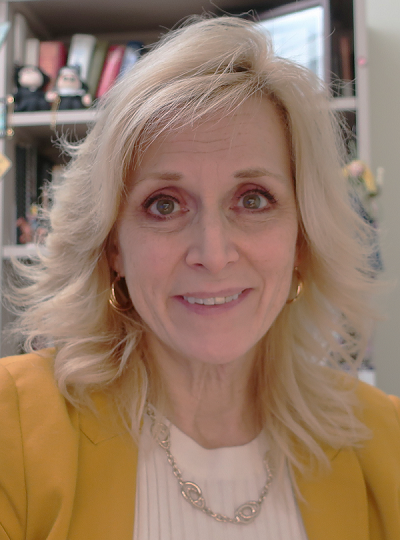 Michelle Davidson, MA
Michelle Davidson, MA
Michelle Davidson is a Senior Lecturer in the Department of English Language and Literature, where she has taught undergraduate writing for 25 years. Her teaching and research focus on helping students develop an academic identity as they improve as writers, researchers, and thinkers.
This objective is reflected in her scholarly activities, which include two competitive fellowships through the Composition Institute for Teaching Excellence (CITE): “Can You Hear Me Now? Making Clearer Connections Between Feedback and Revision with Developing Writers,” and “No Glue Stick Required: Poster Presentations for a Digital Age.” The latter developed into the Composition Program’s Showcase of Student Writing, a biannual event where students present their research projects in a public poster-session.
Since the first Showcase event in 2017, Prof. Davidson has collected data on participant perceptions of belonging and of their identities as emerging scholars. Her research shows that most participants feel a stronger sense of belonging at UT after the event, and a strengthened scholarly identity. She presented her findings at the 2023 National Council of Teachers of English (NCTE) annual convention and at the 2023 College English Association of Ohio conference.
Prof. Davidson has worked on several pilots to develop and improve instruction in the first year writing co-requisite instruction model. She is currently channeling energy into improving persistence and retention in students identified for remediation, the subject of her fellowship proposal. A related interest is exploring the effect of instructor feedback and traditional assessment on student learning, which has led her to champion alternative-grading strategies in her active-learning classroom.
She participated in the Rocket Equity Champions Community of Practice and served as a leader of both a cross-disciplinary faculty group and a composition faculty cohort, leading discussions about best-practices in inclusive teaching and strategies for improving student outcomes. She shared empirical research gathered during this experience in a paper entitled “Positioning First Year Students as Developing Scholars: Boosting Belonging, Connectedness, and Self-Efficacy,” presented at the 2022 Project for Education Research That Scales (PERTS) summer conference.
Over the course of her career, Davidson has participated in many department and university-wide initiatives, mentored graduate teaching assistants, and regularly contributed to faculty development in the Composition program. She has presented at Computers and Writing and several regional conferences in Ohio and Michigan.
She is the recipient of an Innovative Teaching Award from the Center for Excellence in Teaching and Learning. A student web-page publication assignment won the “Best Digital Group Project” award from Cengage.
Prof. Davidson is a first-generation college graduate with a BA in Communication in print journalism (Summa Cum Laude, 1996) from the University of Toledo, where she served as the editor in chief of The Collegian twice-weekly newspaper. During her tenure, the paper was recognized by the Ohio chapter of the Society of Professional Journalists. After graduating, she worked as a reporter and editor, and was awarded a Women in Communication Crystal Merit Award for her City Paper cover story on the industrial contamination of the Ottawa River watershed. She returned to UT in 1998, earned an MA in English Literature—and discovered her passion for teaching.
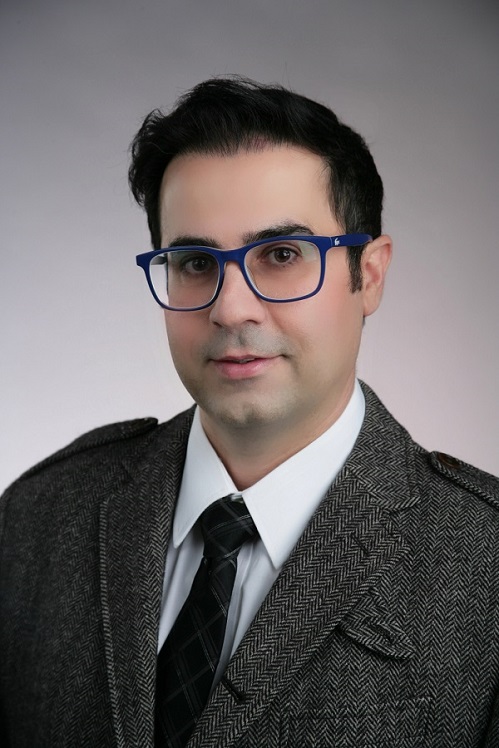 Hossein Sojoudi, Ph.D.
Hossein Sojoudi, Ph.D.
Hossein Sojoudi is an Associate Professor in the Department of Mechanical, Industrial, and Manufacturing Engineering at the University of Toledo (UToledo). Prior to UToledo, he was a Postdoctoral Associate in the Department of Mechanical Engineering at the Massachusetts Institute of Technology (MIT) with a join appointment in the Chemical Engineering Department. Hossein obtained his PhD in Mechanical Engineering from the Georgia Institute of Technology.
Dr. Sojoudi is a recipient of 2023 Outstanding Teacher Award, 2022 President’s Award for Excellence in Creative and Scholarly Activity, 2021 Excellence in Research Award from UToledo COE, and 2020 Excellence in Supervision of Undergraduate Research Award from UToledo COE. He also received American Made Solar Prize from the US Department of Energy (DOE) National Renewable Energy Lab (NREL), SPIE Best Paper Finalist, Materials Research Society (MRS) Best Poster Presentation, and several other awards from Georgia Tech & MIT.
Dr. Sojoudi is the director of the Thermal-Fluid Interfacial Engineering lab at UToledo. His group is focused on understanding the fundamentals of liquid-liquid and liquid-solid interactions in the micro/nanoscale for enhancing efficiency and reliability in power generation/consumption, water purification/separation, oil & gas production/processing, and transportation industries. In his research group he advised 16 graduate students (7 PhD and 9 MS) and >17 undergraduate students.
Dr. Sojoudi’s research resulted in >60 journal publications and >15 conference proceedings with > 4500 citations and 5 U.S. patents. He has been invited as keynote speaker to >30 different universities and international conferences. His work has received considerable attention from scientific and popular media such as the Independent, Blade, Georgia Tech News, MIT News, and Yahoo News. His current research on atmospheric icing is funded by various companies and government agencies such as Clearway, Vena Energy, Ford Motor Company, Ohio Department of Transportation, NSF, and DOE.
Dr. Sojoudi is also on the editorial board of three leadings journals in fluid mechanics and surfaces science. He is a member of the Graduate Council and the Research Council and serves at multiple other committees at UToledo.
2019-2020 Provost Fellows
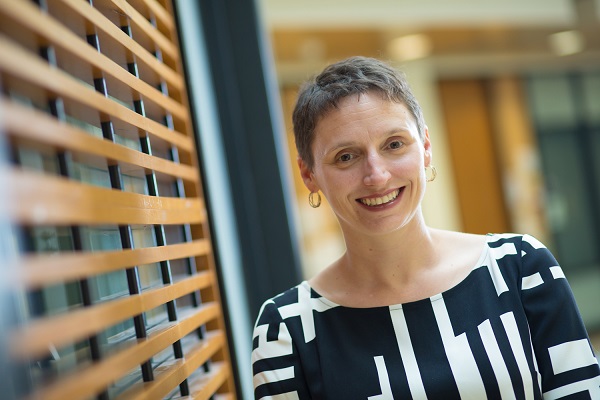 Shelley Cavalieri, JD
Shelley Cavalieri, JD
Shelley Cavalieri is a feminist legal scholar whose work focuses on the construction of women's legal agency under the constraints of patriarchy. She has explored these themes in the contexts of the United States and Ecuador, and in the field of human trafficking. More broadly, her scholarship engages questions of the role of law in advancing equality and justice, which she has taken up in the field of property law through her scholarship on land reform and land banking in struggling midwestern cities. An expert in property law, Professor Cavalieri is co-author of a property law casebook with Toledo Law Dean D. Benjamin Barros and Anna Hemingway.
Professor Cavalieri's work has a global reach. In 2018-19, she was named a Fulbright Faculty Scholar in Quito, Ecuador. She taught Feminist Legal Theories at Universidad San Francisco de Quito, which is Ecuador's top law school. There, she also researched several topics in feminist legal theory. She has likewise conducted research on land reform in Guatemala and taught courses in Mexico and Poland as well. Professor Cavalieri is a prolific scholar who publishes in both Spanish and English. Her work has appeared in many journals, including the Wisconsin Law Review, the Seattle University Law Review, the Indiana Law Journal, the St. John's Law Review, and the Denver Law Review, among others.
At The University of Toledo, Professor Cavalieri is an award-winning classroom teacher, having won the university's pinnacle Outstanding Teacher Award and multiple other teaching awards. She teaches Property, Land Use Planning, Trusts and Estates, Public Health Law, Human Rights and International Development, and occasional undergraduate seminars for the Jesup Scott Honors College. She received her J.D., Order of the Coif, from Berkeley Law and her B.A. from the University of Virginia. Professor Cavalieri clerked for the Hon. Thelton E. Henderson, U.S. District Court for the Northern District of California, and the Hon. Martha Craig Daughtrey, U.S. Court of Appeals for the Sixth Circuit.
For her fellowship, Professor Cavalieri is working to develop practices to address racial and gender inequality in faculty performance of service and advising work, tasks that are crucial for student success but often undervalued in the academy. She is conducting research on faculty satisfaction and climate issues at the university and identifying best practices to improve how administrators value service work in decisions about promotion, tenure, and annual review; allocate service work; and hold faculty accountable for the failure to perform this labor.
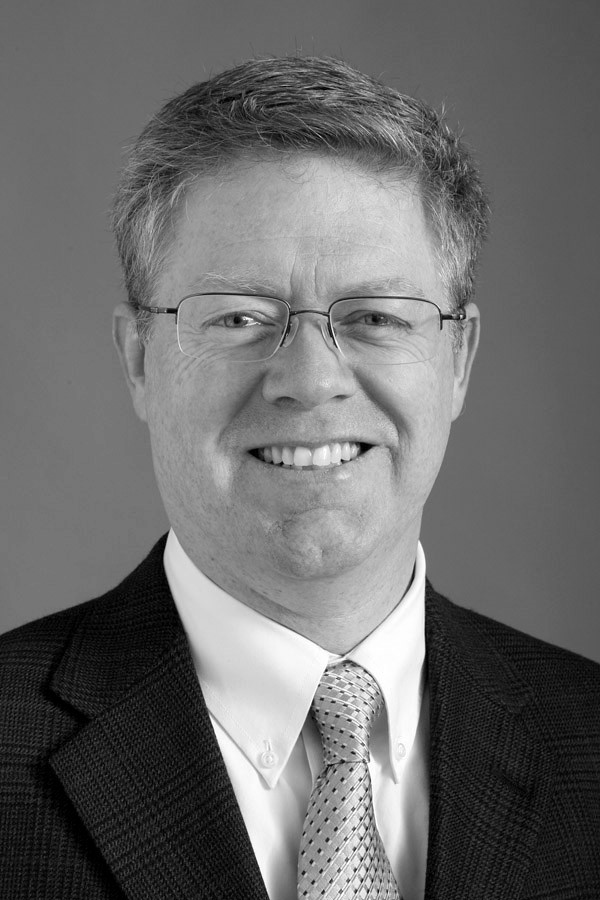 Timothy G. Fisher, PHD
Timothy G. Fisher, PHD
Dr. Timothy G. Fisher is a Geology Professor and the Chair of Environmental Sciences. He specializes in reconstructing the geological events that culminated in our modern landscape. Regionally this involves studying how glaciers, lakes, wind, and water shaped northwest Ohio since the last ice age. Other work has concentrated on understanding the ~100 m changes in water levels of the Great Lakes over the past ~16,000 years and development of the more recent sand dunes along their shorelines. He is also involved in the reconstruction of an immense glacial lake, now gone, that covered central North America at the end of the last ice age. He is testing various hypotheses that drainage from glacial Lake Agassiz drove rapid climate change when drainage routes switched and water often catastrophically drained to different oceans. He is a fellow of the Geological Society of America and Associate Editor for the Canadian Journal of Earth Sciences.
For his fellowship, Dr. Fisher is working to develop an evaluation tool for department chairs and to continue with developing and leading workshops for chairs. Often chairs have little training for their job, and the workshops are designed to provide them with support, knowledge and new skills.
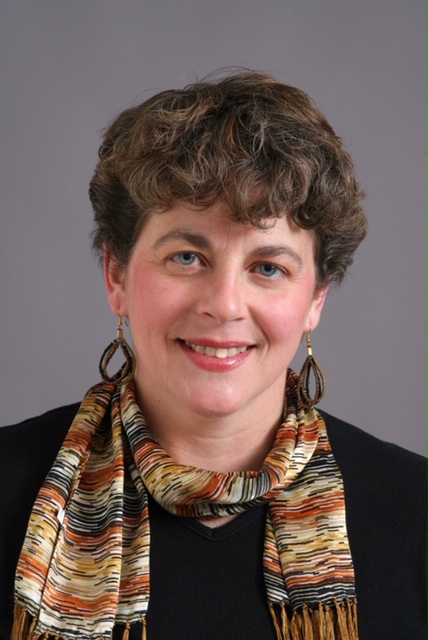 Lynne Hamer, PHD
Lynne Hamer, PHD
Dr. Lynne Hamer is Professor of Social and Philosophical Foundations of Education in the Judith Herb College of Education at The University of Toledo. As a folklorist, she specializes in humanities-based approaches to democratic culture, social justice and schooling. She co-edited Through the Schoolhouse Door: Folklore, Community, Curriculum and has authored numerous peer-reviewed research articles on folklore and education, using community resources for culturally relevant teaching, participatory action research as a pedagogical approach, reversing the school-to-prison pipeline, pre-service teachers' attitudes toward diverse students, and other topics.
Hamer has created undergraduate and graduate courses over the past decades that are based in community engagement and service learning. From 2007-2016, her widely-recognized participatory action research course involved over 200 graduate students from the fields of education, counseling, and public health working with over 100 community experts to document assets in central city Toledo neighborhoods. She is documenting the process and products of this decade in a book with the working title, From Kuhschwantz to Kwanzaa Park: Community Engagement as Pedagogy in Higher Education.
Hamer's current University of Toledo passion is leading creation of Teach Toledo, a collaboration of UT with Toledo Public Schools to recruit underrepresented populations into the teaching profession and to provide an undergraduate teacher education curriculum that focuses on excellence in urban education and knowledge of non-Eurocentric culture.
Hamer received the University of Toledo Outstanding Teacher Award early in her career at UT, in 1999. Since 2011, she has received numerous community and university recognitions for service and engagement, including the University of Toledo Edith Rathbun Outreach and Engagement Excellence Award in 2013. Lynne was recognized with the University Women's Commission Outstanding University Woman Award in 2012.
As a Provost's Fellow, Hamer's project is Culturally Relevant Practices in UT Classrooms and Programs. Hamer is working with UToledo Provost's Diversity Fellows to investigate how specific practices in classrooms and programs have helped UT students succeed in higher education. Hamer will share the lessons of these success stories with the UToledo faculty and administration toward promoting continued efforts.
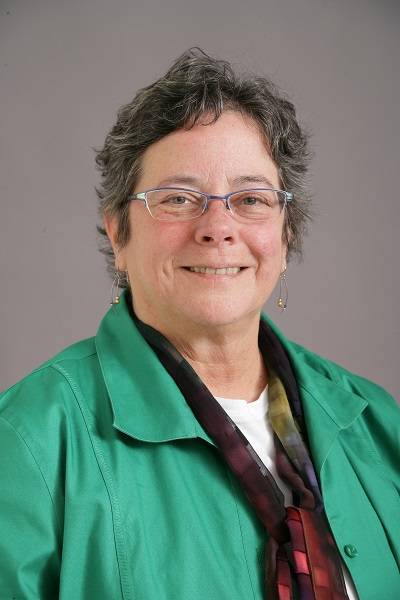 Margaret M. Hopkins, PHD
Margaret M. Hopkins, PHD
Dr. Margaret M. (Miggy) Hopkins is a Professor of Management in the College of Business and Innovation at the University of Toledo, teaching leadership and management at the Executive MBA, MBA, and upper-undergraduate levels. Her research expertise is in the field of leadership, covering leadership development, gender and leadership, executive coaching, and emotional intelligence.
She has received numerous awards for teaching and research including the University of Toledo Outstanding Teacher Award, the COBI Graduate Faculty Teaching Award, the COBI Outstanding Researcher Award, as well as several Best Paper international research awards. Dr. Hopkins is a Board Certified Executive Coach working with senior leaders in the service, manufacturing, education, health care, government and non-profit sectors for over 20 years.
Prior to joining academia, she held a number of managerial and leadership roles in the public sector including Chair of the Board of Education for the Cleveland, Ohio Municipal School District, Co-Director of the Mayor’s Office of Competitiveness in Cleveland, Ohio, and Deputy Director of the Governor’s Office for Northeast Ohio. She earned her undergraduate degree from Boston College, and her masters’ and doctoral degrees in Organizational Behavior from Case Western Reserve University. Provost Fellow topics is in Faculty Mentoring and Faculty Development.
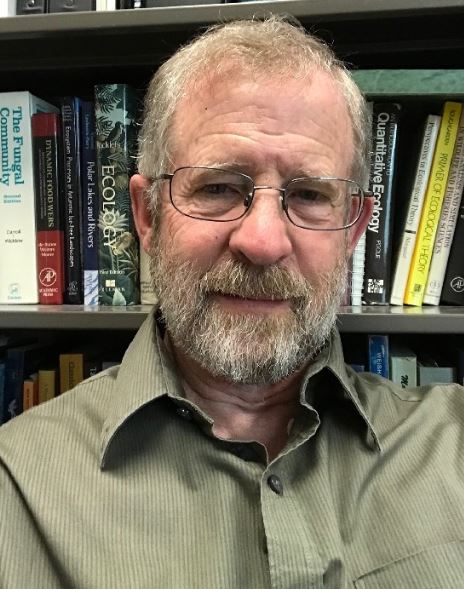
Daryl Moorhead, PHD
Dr. Moorhead is a Professor of Biology (Ecology) in the Department of Environmental Sciences at The University of Toledo. His research collaborative and focuses on modeling energy and nutrient acquisition by microorganisms that decompose plant litter with extracellular enzymes. He teach ecology and environmental sciences ranging from introductory non-major classes through advanced graduate courses, in both traditional and distance-learning formats. His primary service commitment is the graduate program director of my department and as a Provost Fellow, seeking to improve graduate student mentoring across the university.
Dr. Moorhead received a BS in Botany and Zoology from the Ohio State University in 1978, a MS in Biology from Texas A&M University in 1981, and PhD in Ecology from the University of Tennessee in 1985. He had postdoctoral positions with New Mexico State University and San Diego State University between 1985-1990 and was an Associate Professor of Biology at Texas Tech University (1990-1999) before moving to the University of Toledo in 1999.
As a mathematical modeler, Moorhead almost always work with experimentalists who provide the data that needs to build models. As of 2019 he have authored or coauthored over 100 articles and book chapters, 140 scientific talks and 35 seminars, participated in 25 workshops, and collaborated in projects receiving about $19M in grant support—almost all of which was collaborative.
Moorhead has advised or co-advised 17 traditional MS and PhD (Biology) graduate students who have completed their degrees, as well as 11 in-service high school teachers from the Toledo vicinity (MS degrees in Biology). Undergraduate students rarely pursue quantitative biology, but 16 have completed research projects under his direction.
Dr. Moorhead has completely replaced traditional lecture format with more varied content delivery methods, depending on class size, content, and academic level. All my classes use blended computer/internet assisted instruction, partially "flipped" assignments, in-class activities, multiple assessment methods, and when possible, use materials other than commercial textbooks. Student achievement and satisfaction have improved with these modifications, although it requires more preparation for everyone.
He became the graduate program director for my department when my colleagues and he agreed that we needed to improve our advising. In brief, we created a culture of student engagement and empowerment based on a philosophy linking the learning process to the psychological needs of students. Faculty and students use the same model to assess progress and provide/seek support. Formal training includes orientation, critical paperwork, checklists, and TA responsibilities, with an emphasis on building a strongly interactive, peer group. Metrics of success (e.g., retention, time to degree) have improved and uncertainties about requirements and progress have declined.
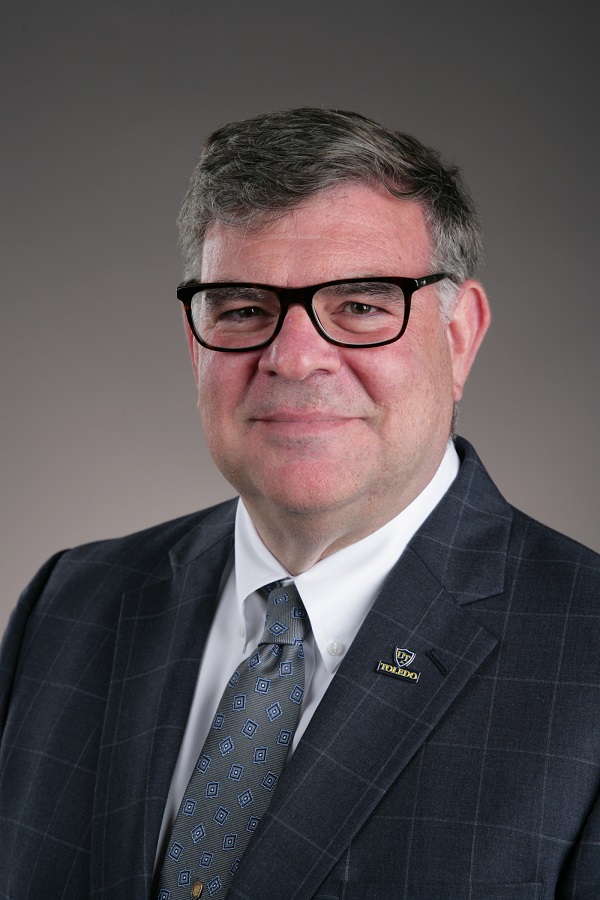 Barry W. Scheuermann, PHD
Barry W. Scheuermann, PHD
Dr. Scheuermann was appointed Interim Dean of the College of Health and Human Services on July 1, 2019. Prior to assuming this position, Dr. Scheuermann served as the Associate Dean for Academic Affairs for five years and as the Chair of the former Department of Kinesiology for four years. Dr. Scheuermann is the Director of the Cardiopulmonary and Metabolism Research Laboratory, a position he has held since joining the University of Toledo in 2003. He has taught numerous courses in sport and exercise physiology and continues to pursue his research interests focusing on the benefits of regular physical activity on maintaining vascular health.
Dr. Scheuermann received a B.A.(Hons.) in Physical Education with a specialization in exercise physiology from the University of Western Ontario in 1992 and completed his Ph.D. in Kinesiology at the University of Western Ontario in1998. Dr. Scheuermann was awarded a Medical Research Council of Canada Fellowship while completing postdoctoral training at Kansas State University from 1997 to 2001. His first faculty appointment was Assistant Professor of Exercise and Sport Sciences at Texas Tech University and Adjunct Assistant Professor of Physiology in the School of Medicine at the Texas Tech University Health Sciences Center from 2001 to 2003.
For his fellowship, Dr. Scheuermann is working to develop a series of workshops and an on-line toolkit designed to assist faculty members as they prepare their dossier for the tenure and/or promotion. The workshops will provide faculty an opportunity to engage with other faculty members as we discuss the evaluation process, how to write effective teaching, research and service narratives, present well-organized supporting evidence and the pitfalls to avoid.
2018-2019 Provost Fellows
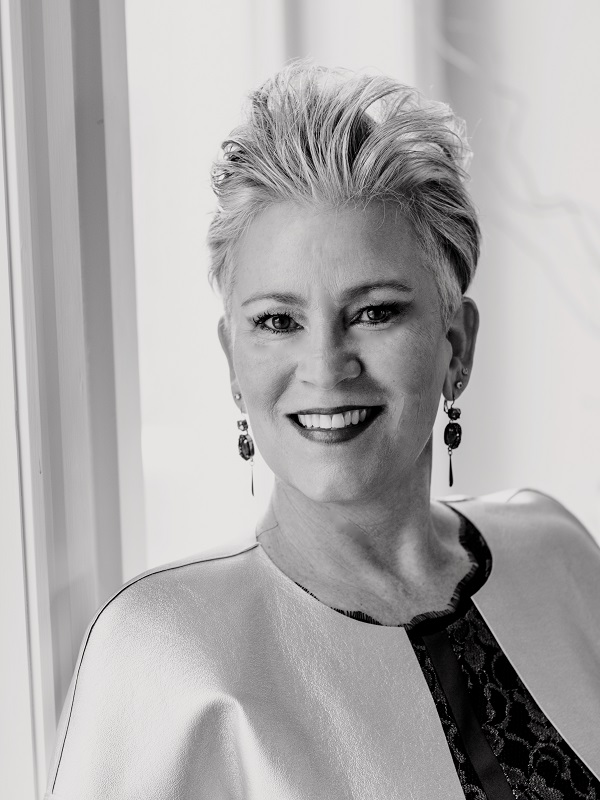 Denise Bernardini, PHD
Denise Bernardini, PHD
Denise is Associate Professor of voice and opera at the University of Toledo. Denise appears on both the concert, musical theater and opera stage in music of many periods. She is known for her ability to sing a variety of styles, her brilliant high notes, pure tone, communicative warmth and musical intelligence. She has been a performer Internationally and throughout the US with extensive Oratorio experience. She has performed with orchestras such as The New York Pops, Toledo Symphony Orchestra, Southwest Michigan Symphony, Fort Worth Symphony, Tulsa Symphony, Fort Wayne Philharmonic, the Symphony of Bartlesville, Oklahoma City Symphony, Roanoke Community Choir and Charlottesville Community Choir as well as many other symphonic and choral organizations. Denise's operatic roles include First Lady in Magic Flute, Mother in Amahl and The Night Visitors, Violetta in La Traviata, the title role in Suor Angelica, as well as Gilda in Rigoletto. Denise has been a soloist in prestigious venues such as Carnegie Hall and is a sought after recitalist performing in London, England, Tbilisi, Republic of Georgia and at the Certosa di Garegnano in Milan, Italy as well as a performance of her one-woman classical cabaret in Leibnitz, Austria where she performed for the International University of Global Theater to an audience representing 32 different countries.
In addition to being an active performer, Dr. Bernardini is also a sought-after clinician, teacher, presenter, and author. Denise is a recital and cabaret specialist and has a published book entitled: A Stylistic Guide of Classical Cabaret: A Stylistic and Historical Glimpse with selected songs by Satie, Poulenc, Schönberg, Weill, Britten and Moore, (Amazon) as well as a presenter/clinician at national and international voice conferences. Denise has presented at The Voice Symposium in Philadelphia, Pennsylvania, the International Congress of Voice Teachers in Stockholm, Sweden, the Great Lakes Regional conference of College Music Society and Indiana Music Educators Convention, as well as several NATS regional and state level clinics. Denise has taught for summer programs internationally and in the states.
Dr. Bernardini's students have been accepted to internationally prestigious programs such as Julliard's Youth Opera Program, The Lincoln Center's Youth Opera Program, Interlochen, and The International Young Artists Project in Italy. Her students are also singing throughout the world and are sought after performers and soloists. Denise's University students have been accepted to Conservatories and Universities of their choice and regularly win competitions such as NATS, Classical Singer Competition, as well as The Metropolitan Opera Auditions winning thousands of dollars annually.
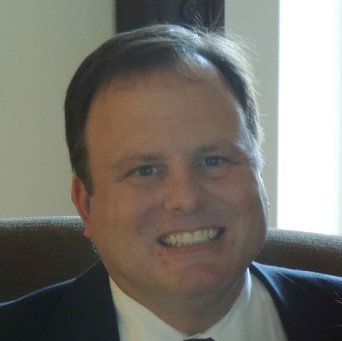 Daniel P. Compora, PHD
Daniel P. Compora, PHD
Dr. Daniel P. Compora is an Associate Professor in the Department of English at the University of Toledo. He specializes in undergraduate education and teaches a variety of general education and major courses, including Folklore, Folklore and Literature, Science Fiction and Fantasy Literature, and The Detective Story. Dr. Compora is an interdisciplinary scholar with publications in various areas, including literature, folklore, popular culture, and educational technology.
During his fellowship. Dr. Compora has worked on the first-year experience. He has taken an active role in the formation and the activities of the FYE Course Revision Task Force, which is currently developing a pilot course for the fall of 2019. He is currently engaged in data collection efforts, including a forthcoming survey of faculty and the formation of a Focus Group Subcommittee to get student perspectives on UT's FYE program.
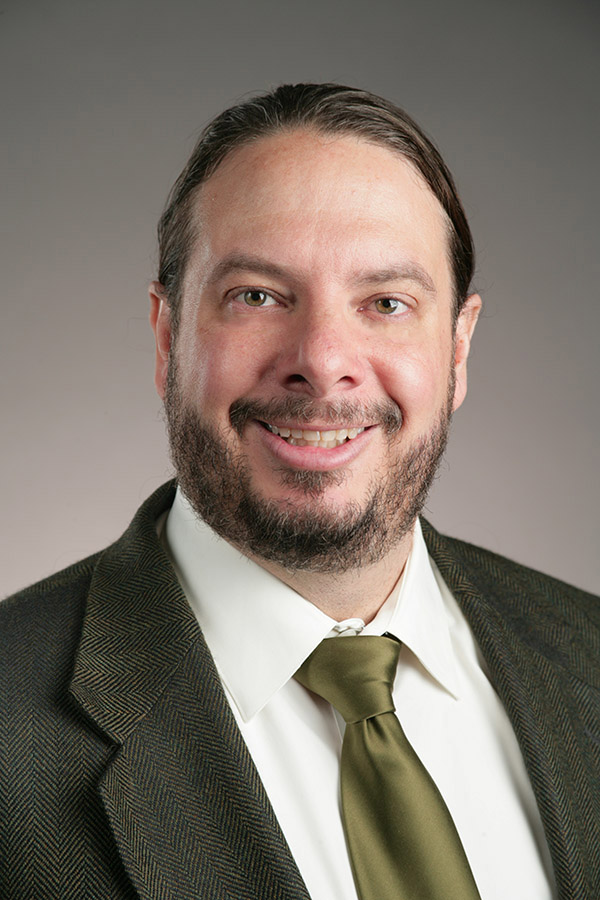 Tavis J. Glassman, PhD, MSEd, MPH, CHES, CCPH
Tavis J. Glassman, PhD, MSEd, MPH, CHES, CCPH
Dr. Glassman serves as an Professor at The University of Toledo. He earned his doctorate from the University of Florida and Masters in Public Health from The Ohio State University. He is a Master Certified Health Education Specialist and a Certified Communicator in Public Health. In addition, Dr. Glassman is an inductee of the Start High School Hall of Fame and a Jefferson Community Service Awardee. He teaches Drug Awareness, Human Sexuality, Social Marketing, Health Communication and Health Behavior courses. His research interests involve the prevention of high-risk behaviors among college students. For example, he has designed interventions to reduce the excessive alcohol consumption associated with tailgating on game day, 21st birthday celebrations, spring break, etc. Further, he designs, implements, and evaluates health communication messages, which promote healthy lifestyles.
In his role as a Provost Fellow, he designed, with assistance from UT Marketing and Communications, a video to assist students with their study and wellness habits during midterms and finals. Dr. Glassman is evaluating the effectiveness of the video and continues to conduct research in this area. To view the video click on this link. ( https://youtu.be/IWy7a7oN5ow)
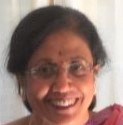 Revathy Kumar, PHD
Revathy Kumar, PHD
Revathy Kumar is professor of educational psychology at the University of Toledo. She is a Fulbright Specialist scholar, adjunct assistant research scientist at the Institute for Social Research’s Survey Research Center, University of Michigan; past associate editor for Developmental Psychology, past historian and current secretary for Division 15 of the American Psychological Association, and Provost Faculty Fellow for the academic year 2018-2019. She earned a Ph.D. in Education and Psychology from the Combined Program in Education and Psychology, University of Michigan. Her research focuses on social and cultural processes involved in constructing a sense of self and identity among adolescents and young adults in culturally diverse societies. Of particular interest are the role of teachers, teacher-education programs, schools, communities, and families in facilitating minority and immigrant adolescents’ development, learning, and motivation. She was a recipient of the Spencer Foundation Major Grant and is Co-Principal Investigator on a grant funded by the National Science Foundation. She also received internal grants from the University of Toledo to conduct mindfulness intervention projects with elementary school students and preservice teachers. Her work is published in American Educational Research Journal, Educational Psychologist, Journal of Educational Psychology, Journal of Research on Adolescence, Journal of Teacher Education, Contemporary Educational Psychology, and Educational Studies.
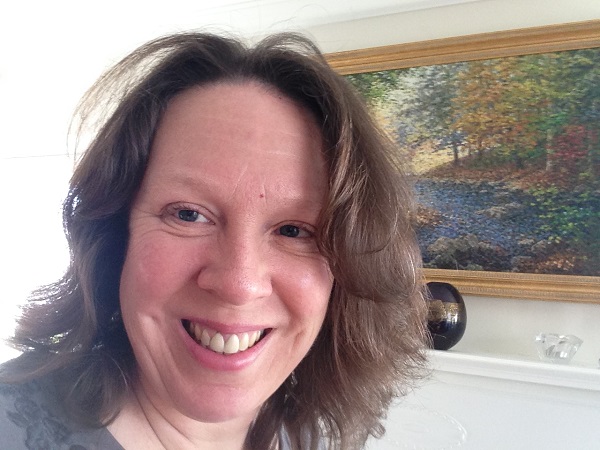
Kim Nielsen, PHD
Dr. Kim Nielsen is Professor and Program Chair of Disability Studies at the University of Toledo. Her scholarship explores disability, gender, and citizenship throughout U.S. history. Nielsen's newest book, Money, Marriage, and Madness: The Life of Anna Ott will appear in late 2019 (University of Illinois Press). Other books include The Oxford Handbook of Disability History (co-edited), A Disability History of the United States (Beacon, 2012), Beyond the Miracle Worker: The Remarkable Life of Anne Sullivan Macy and Her Extraordinary Friendship with Helen Keller (Beacon, 2009) and The Radical Lives of Helen Keller (NYUP, 2004). Her journal publications include Signs, The Journal of Southern History, Rethinking History, and The Journal of Women's History. In 2010 the Organization of American Historians honored Nielsen by appointing her a Distinguished Lecturer. Other awards include a Fulbright Specialist appointment, the 2007 A. Elizabeth Taylor Prize of the Southern Association of Women Historians, a Founders Award for Excellence in Teaching, an Organization of American Historians lectureship in Japan, a National Endowment for the Humanities Summer Fellowship, and a Fulbright Scholars Award to the University of Iceland. Nielsen was founding president of the Disability History Association. She earned her Ph.D. in History from the University of Iowa.


